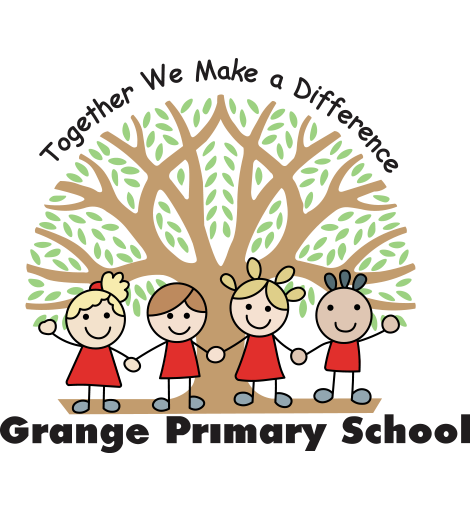Keeping Safe Online
In today's digital world, technology offers incredible opportunities for learning, creativity, and connection. At Grange Primary School, we believe in empowering our children to navigate the online world confidently and safely. This page provides guidance and resources for both children and parents to ensure everyone enjoys the internet responsibly.
For Children: Your Online Safety
The internet is an amazing place, full of games, videos, and ways to learn new things! But just like in the real world, it's important to know how to stay safe. Here are your top tips for being a Smart Surfer!
Think S.M.A.R.T. Online:
-
S - Safe: Keep your personal information safe. Don't share your name, address, school, or phone number with anyone you don't know online.
-
M - Meeting: Never agree to meet someone in person who you've only met online. Tell a trusted adult if someone asks you to.
-
A - Accepting: Don't accept files, games, or open links from people you don't know. They might contain viruses or nasty surprises.
-
R - Reliable: Not everything you see online is true. If something looks strange or makes you feel uncomfortable, it probably isn't reliable. Always check with an adult.
-
T - Tell: If anything online makes you feel worried, scared, or uncomfortable, TELL a trusted adult straight away. This could be a parent, teacher, or another grown-up you trust. They will help you.
Remember: You have the power to stay safe online! If you're ever unsure, just stop and tell an adult.
For Parents and Carers: Partnering for Online Safety
As parents, you play a crucial role in guiding your children through the digital landscape. We understand that keeping up with technology can be challenging, but together, we can ensure our children are safe, responsible, and resilient online.
Our School's Approach: At Grange Primary School, online safety is an integral part of our curriculum. We teach children about safe internet use, responsible communication, and how to respond to and report concerns using the SWGFL 360 tool. We have robust filtering and monitoring systems in place to protect children whilst using our school network.
How You Can Help at Home:
-
Talk Regularly: Have open and honest conversations with your child about what they do online. Ask them about their favourite games, websites, and apps. Let them know they can always come to you if something worries them.
-
Set Clear Rules & Boundaries: Agree on rules for internet use, including screen time limits, appropriate content, and personal information sharing. Tools like family filters, parental controls, and safe search settings can be very helpful.
-
Explore Together: Share online experiences with your child. Play games together, watch videos, and explore educational websites. This helps you understand their online world and can spark conversations.
-
Privacy Settings: Help your child understand and set privacy settings on apps and games they use. Explain why it's important to keep personal information private.
-
Report Concerns: If your child encounters something upsetting or inappropriate online, encourage them to tell you. You can report serious concerns to CEOP (Child Exploitation and Online Protection Command) via their website.
-
Model Good Behaviour: Children learn from adults. Model respectful online behaviour and responsible use of technology.
Useful Resources for Parents:
-
NSPCC Online Safety: Link to NSPCC Online Safety page - www.nspcc.org.uk/keeping-children-safe/online-safety/ - Excellent advice on a range of topics.
-
Thinkuknow (from CEOP): Link to Thinkuknow Parents page - www.thinkuknow.co.uk/parents/ - Information and guidance for parents from the National Crime Agency.
-
Internet Matters: Link to Internet Matters website - www.internetmatters.org/ - Expert safety advice, guides, and controls for different ages.
-
UK Safer Internet Centre: Link to UK Safer Internet Centre www.saferinternet.org.uk/ - Tips, advice, guides and resources to help keep your child safe online.
Reporting Concerns
If you or your child are worried about something that has happened online, please:
-
Speak to a trusted adult (parent, carer, teacher).
-
Report it directly to CEOP (Child Exploitation and Online Protection Command) if you believe a child is at risk: CEOP Report Abuse button www.ceop.police.uk/safety-centre
Your child's safety is our top priority. Thank you for working with us to create a safer online environment for everyone.
